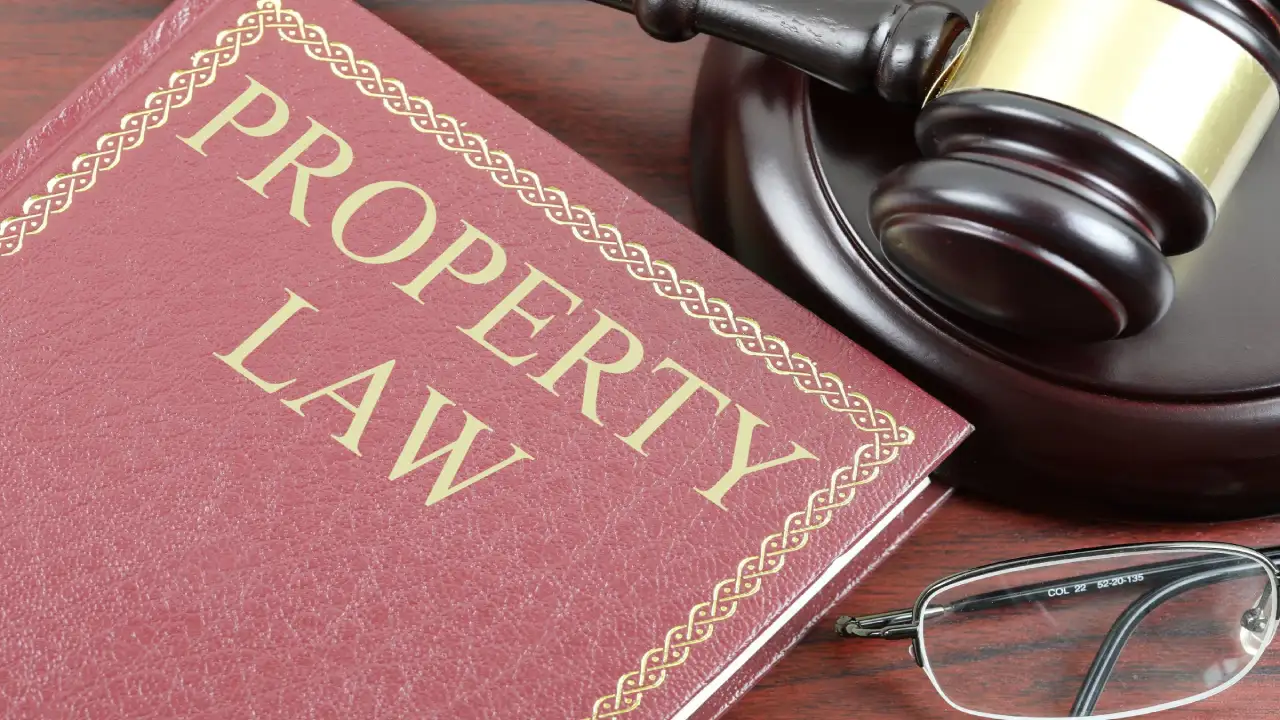Buying or selling a property can be a complex and daunting process. From understanding legal requirements to navigating potential disputes, having a solid grasp of property law is essential for both buyers and sellers. In this article, we will explore the basics of property law, legal considerations for buyers and sellers, the role of legal professionals in property transactions, and common legal issues that may arise. Whether you are a buyer or a seller, this guide will provide valuable insights to help you navigate the intricacies of property law with confidence.
Understanding the Basics of Property Law
Before delving into the specific legal considerations for buyers and sellers, it is important to have a solid understanding of the basics of property law. Property law refers to the body of rules and regulations that govern the ownership, use, and transfer of real estate. It encompasses a wide range of legal concepts and principles that ensure transactions are fair and secure.
To navigate property law effectively, it is crucial to familiarize yourself with key terms commonly used in the field. These terms include:
- Title: The legal right to ownership of a property.
- Deed: A legal document that transfers ownership of a property from one party to another.
- Mortgage: A loan secured by real estate, typically used to finance the purchase of a property.
- Encumbrance: A claim or lien on a property, such as a mortgage or easement, that may affect its ownership or use.
By familiarizing yourself with these key terms, you will be better equipped to understand the legal intricacies of property transactions.
The Role of Property Law in Real Estate Transactions
Property law plays a crucial role in real estate transactions by ensuring that both buyers and sellers are protected and that the process is carried out in a legally sound manner. This includes verifying the ownership of the property, conducting due diligence to identify any potential issues or encumbrances, and overseeing the transfer of ownership through legally binding contracts.
Additionally, property law provides a framework for resolving disputes that may arise during or after a transaction. Whether it is a disagreement over the terms of a contract, a boundary dispute, or an issue with the property’s title, property law provides the necessary legal mechanisms to address these challenges.
Furthermore, property law encompasses various types of property rights, such as easements and leases. Easements grant individuals or entities the right to use a portion of another person’s property for a specific purpose, such as accessing a neighboring property or installing utility lines. Leases, on the other hand, involve the temporary transfer of the right to use and occupy a property in exchange for rent.
Property law also takes into account the concept of zoning, which regulates the use and development of land within a particular jurisdiction. Zoning laws determine what types of activities are permitted in different areas, such as residential, commercial, or industrial zones. These regulations help maintain the integrity of neighborhoods and ensure that properties are used in a manner that aligns with the community’s goals and interests.
Moreover, property law extends beyond the physical aspects of real estate. It also covers intellectual property rights related to real estate, such as trademarks and copyrights associated with property development projects or architectural designs. These rights protect the creative and innovative aspects of real estate ventures, fostering a climate of innovation and encouraging investment in the industry.
In conclusion, property law is a multifaceted field that encompasses various legal concepts and principles. By understanding the basics of property law and its role in real estate transactions, individuals can navigate the complexities of property ownership and ensure that their rights are protected throughout the process.
The Buyer’s Perspective on Property Law
As a buyer, understanding the legal considerations before purchasing a property is essential to protect your interests and make informed decisions. Before entering into any transaction, it is important to conduct thorough legal due diligence.
Legal Considerations Before Buying a Property
Before buying a property, it is crucial to conduct a title search to verify the ownership and title history of the property. This will help identify any potential issues, such as liens or disputes, that may affect your rights as a buyer. Additionally, it is important to review any existing contracts, agreements, or encumbrances that may impact the property’s use or value.
But let’s dive deeper into the world of title searches. Did you know that a title search involves examining public records, such as deeds, mortgages, and court documents, to trace the history of ownership of the property? This process can reveal fascinating details about the property’s past, including previous owners, transfers of ownership, and even historical events that may have shaped its development.
Furthermore, understanding zoning laws, building codes, and environmental regulations is vital to ensure that the property is suitable for your intended use and to avoid any legal complications in the future. Zoning laws, for instance, dictate how the property can be used and what types of structures can be built on it. Building codes, on the other hand, establish the minimum standards for construction and safety. And let’s not forget about environmental regulations, which aim to protect natural resources and prevent pollution.
Understanding Your Rights as a Property Buyer
Property buyers have specific legal rights that protect them throughout the purchasing process. For example, buyers have the right to receive accurate and truthful information about the property, including any known defects or issues. They also have the right to negotiate the terms and conditions of the purchase agreement, including price, financing, and contingencies.
But did you know that buyers also have the right to conduct inspections on the property? This allows them to thoroughly assess the condition of the property and identify any potential problems that may require repairs or renovations. Inspections can cover various aspects, such as the structural integrity of the building, the functionality of the electrical and plumbing systems, and even the presence of pests or hazardous materials.

By understanding and asserting these rights, buyers can protect themselves from potential scams, misrepresentations, or unfair practices. It is crucial to be proactive and diligent throughout the buying process to ensure a smooth and successful transaction.
The Seller’s Perspective on Property Law
Property sellers also have legal obligations that must be fulfilled to ensure a smooth and legally sound transaction.
From the moment a property is listed for sale, the seller steps into a realm governed by a web of legal considerations and responsibilities. It is crucial for sellers to navigate this landscape with precision and integrity to uphold the principles of property law.
Legal Obligations of a Property Seller
When selling a property, it is important for the seller to accurately represent the condition and attributes of the property. Sellers must disclose any known defects, issues, or encumbrances that may affect the buyer’s decision or use of the property. Failure to disclose such information can lead to legal disputes and financial liabilities.
Moreover, sellers must go beyond mere surface disclosures and delve into the intricacies of the property’s history. This includes revealing any past disputes, environmental concerns, or zoning restrictions that could impact the future ownership and enjoyment of the property. By providing comprehensive information, sellers uphold transparency and foster trust in the transaction. Click here to learn about optimizing your financial future with smart tax planning strategies.
In addition, sellers must provide clear and marketable title to the property, free from any undisclosed liens or claims. Fulfilling these obligations not only ensures a fair transaction but also protects the seller from potential legal consequences.
Protecting Your Interests as a Property Seller
To protect your interests as a property seller, it is advisable to work with a qualified real estate attorney. An attorney can review and draft contracts, assist with negotiations, and ensure that all legal requirements are met. They can also guide you through the closing process and help address any legal issues that may arise.
Furthermore, sellers can benefit from engaging the services of a reputable real estate agent who possesses in-depth knowledge of the local market. An experienced agent can provide valuable insights on pricing strategies, marketing techniques, and potential buyers, ultimately maximizing the property’s exposure and sale potential. By leveraging the expertise of professionals in the field, sellers can navigate the complexities of property law with confidence and achieve a successful transaction.
The Role of Legal Professionals in Property Transactions
Legal professionals, such as real estate lawyers, play a crucial role in property transactions. Their expertise and guidance can help buyers and sellers navigate the legal complexities and minimize potential risks.
Real estate lawyers are essential when it comes to reviewing contracts, conducting due diligence, and ensuring that all legal requirements are met. They can provide invaluable advice on issues such as financing, zoning compliance, and tax considerations. In addition, they can represent you in negotiations, draft legal documents, and assist in resolving disputes.
When and Why You Need a Real Estate Lawyer
While not all property transactions require the involvement of a real estate lawyer, it is advisable to seek their assistance in more complex or high-stakes situations. If you are purchasing a commercial property, dealing with complicated financing arrangements, facing zoning or land use challenges, or involved in a dispute, a real estate lawyer can provide the expert guidance you need.
The Process of Legal Consultation in Property Transactions
When engaging a real estate lawyer, the process typically begins with an initial consultation. During this consultation, you can discuss your specific needs, concerns, and goals. The lawyer will review the details of your transaction and provide an assessment of how they can assist you. If you choose to move forward, the lawyer will work closely with you throughout the entire process, providing guidance and advice at every stage.
Common Legal Issues in Property Transactions
While property transactions can be relatively smooth, various legal issues can arise that require careful attention.

Dealing with Property Disputes
Property disputes can arise due to disagreements over boundaries, easements, or the interpretation of contractual terms. Resolving these disputes often requires legal intervention, and it is advisable to consult with a real estate lawyer for guidance.
Mitigating Legal Risks in Property Transactions
To minimize legal risks, it is crucial to conduct due diligence, review all contracts and documents carefully, and work with qualified professionals throughout the process. By taking these steps, buyers and sellers can protect their interests and ensure a smooth and legally sound transaction.
In conclusion, understanding property law is vital for both buyers and sellers in real estate transactions. By familiarizing yourself with the basics of property law, understanding your rights and obligations, and working with qualified legal professionals, you can navigate the complexities of property transactions with confidence. Keep in mind that each transaction is unique, and seeking expert advice is crucial to ensure that your rights are protected and that all legal requirements are met.

